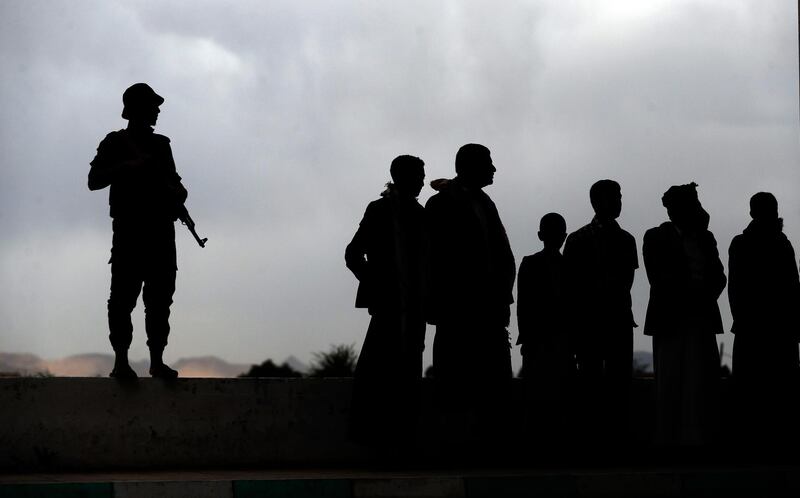Tim Lenderking, the US special envoy for Yemen, told Congress on Wednesday that more work was needed to have the Houthis "put down their guns".
But the Iran-backed rebels will play a “significant role in a post-conflict government” in the country, Mr Lenderking said.
He called on the Houthis to end their offensive on Marib, calling it "the single biggest threat to peace efforts" with "devastating humanitarian consequences".
“Marib has been a haven of stability and a refuge for nearly one million internally displaced persons who have fled conflict elsewhere and have nowhere else to go," Mr Lenderking said.
“The Houthi takeover of the city is not imminent but they continue to move closer to their goal of encircling the city, potentially cutting off the population of nearly 1.8 million people, many of them already extremely vulnerable.”
He said the Marib offensive was “a tipping point that would overwhelm the already overstretched humanitarian response”, and “trigger a wave of further fighting and instability” if the Houthis did not immediately end it.
“The Houthi movement is somewhat divided,” Mr Lenderking said.
“There are elements that are supportive of the kind of engagement we are encouraging and don’t necessarily see a military solution.
"But what we see on the ground is different.”
Mr Lenderking was testifying on his recent visits to the region before the foreign affairs committee in the House of Representatives.
He travelled to the UAE and Germany last week as part of efforts by the US administration of President Joe Biden to enable a nationwide ceasefire in Yemen.
They hope this would be a step towards an end to the conflict between the Houthis and the Saudi-led Arab Coalition, which is supporting the internationally recognised Yemeni government.
“I went to the UAE in my last trip last week to talk to them about ensuring that their influence remains supportive, constructive, to continue to ensure that they are focusing on the humanitarian side as well,” Mr Lenderking told Congress.
He called the UAE “a key partner” for the US in Yemen.
“It has reduced its military influence there, drawing down its troops over the past two years,” he said.
“They remain a vital counter-terrorism partner with us and with Saudi Arabia.”
In Berlin, Mr Lenderking met representatives from UN Security Council permanent members, and diplomats from Germany, Kuwait, Sweden and the EU.
“We now have achieved a greater international consensus on ending this conflict than ever before, but with more proactive engagement from key regional actors, such as our European partners and Oman,” he told Congress.
“There’s been constructive engagement between the parties. The UN Security Council enjoys an unusual amount of unanimity of solving the conflict in Yemen.”
Mr Lenderking called for an end to blocking humanitarian aid, saying that “at least one Yemeni child dies every 10 minutes from preventable causes".
“Fuel must be allowed to enter regularly and unimpeded through Hodeidah port,” he said.
“The Republic of Yemen government bears responsibility to address this issue and Saudi Arabia must not stand in the way of doing so.
“Similarly, the Houthis bear responsibility for then ensuring that fuel moves freely throughout the areas under their control and for abiding by their commitments in the 2018 Stockholm agreement to use port revenue to pay salaries of Yemeni civil servants – salaries that provide urgently needed purchasing power to households living on the margins.”
Five ships arrived in Hodeidah, Yemen's largest port, last month.
More are on the way and 446,000 tonnes of food have recently made it to Hodeidah – the largest quantity in the past five years.
“This, too, is not enough but these figures do show that the system can work with co-operation from parties to the conflict and effective UN oversight,” Mr Lenderking said.







